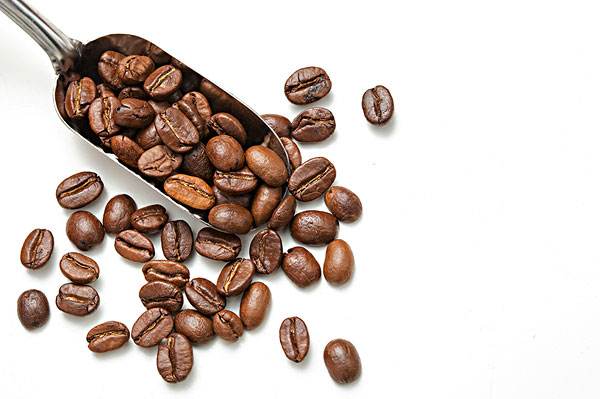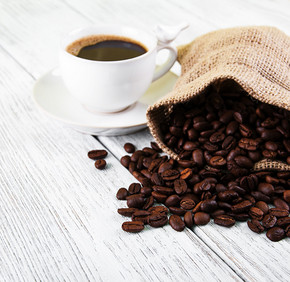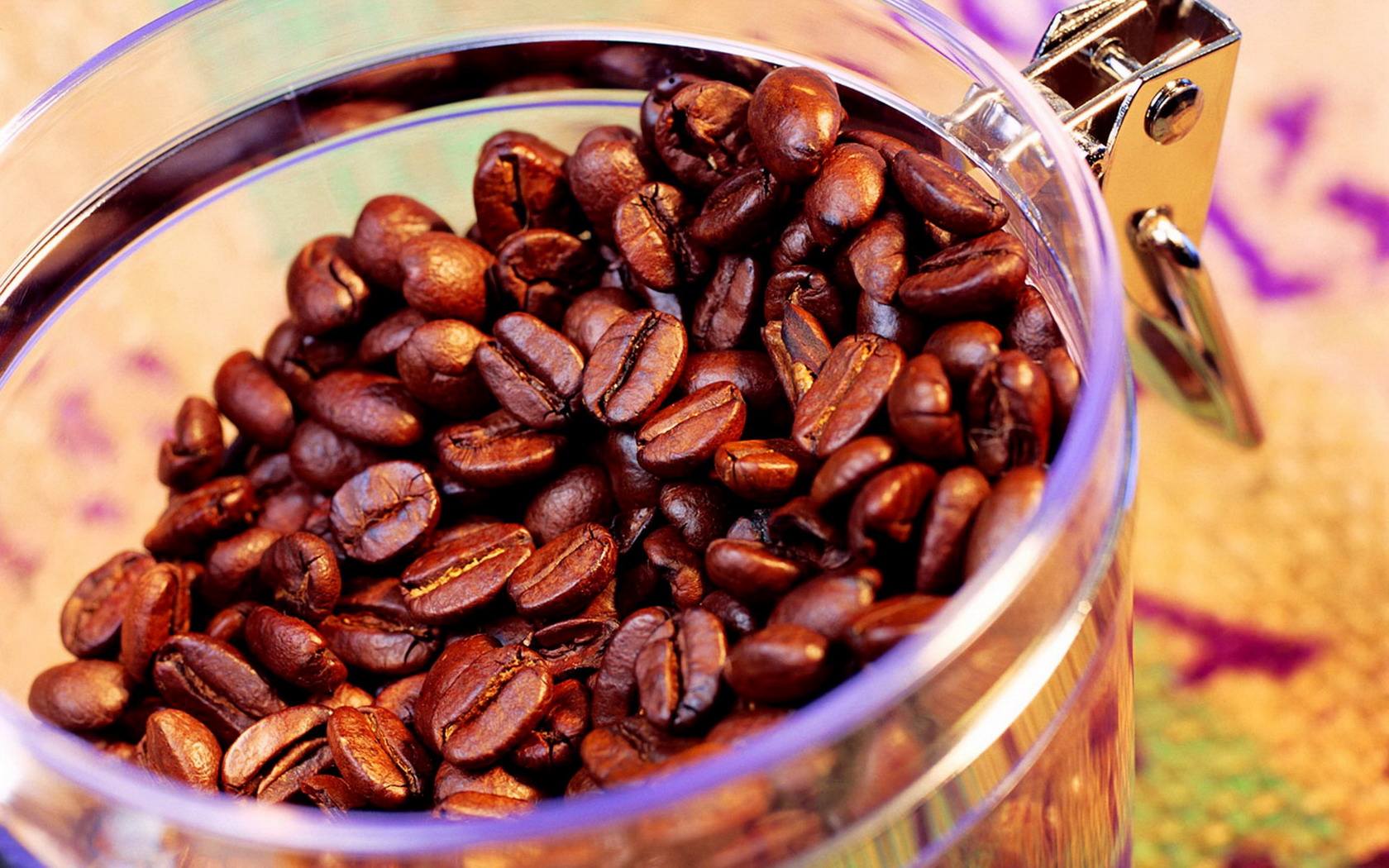The reason for the high cost of coffee production in Jamaica
Follow the caf é (Wechat official account vdailycom) and found that Beautiful Cafe opened a small shop of its own.
The reason for the high cost of coffee production in Jamaica
Blue Mountain Coffee is the most superior coffee in the world, and the weather, geological structure and topography of Jamaica provide an ideal place. The ridge that runs through Jamaica extends to the eastern part of the island, where it is foggy all the year round, with frequent precipitation, pure air and bright sunshine, which reconciles the island of Rain Water. Here, a mixed planting method is used to grow coffee trees to accompany banana trees and avocado trees on terraces. Some small estates are also planted. But even the largest landowners in the region are small-scale growers by international standards, many of whom are small landowners whose families have been working for two centuries. The coffee industry in Jamaica faces a series of problems, such as the impact of hurricanes, leaf rust, increased labour costs and difficult mechanization of terraces. Many small estates and farms are difficult to rationalize.
Since Japan has signed a 30-year contract with the Jamaican Coffee Industry Authority (CIB) to continue to invest in the Jamaican coffee industry, before 2009, Jamaican Blue Mountain Coffee was basically underwritten by Japanese consortia. For example, in 1992, Jamaica sold 688 tons of Blue Mountain coffee to Japan, 75 tons to the United States and 59 tons to Britain. In 2008, after the contract between the two sides expired, they were facing a global economic crisis, the Japanese economy was in the doldrums and their purchasing power was declining. Coupled with the awakening of Jamaican coffee farmers and their unwillingness to be monopolized by Japanese businessmen, the price of raw coffee beans was raised sharply. So far, Japan's purchase of Jamaican Blue Mountain coffee has dropped from 90% to less than 60%. This also brought an opportunity to the Hangzhou Coffee and Western Food Industry Association team in Hangzhou, China, which was dominated by @ Blue Mountain Coffee in 2010, and signed the sole distributor of Jamaican raw beans with an annual quota of 70 tons in China.

Jamaica is one of the small coffee producing regions in the world, with an annual harvest of about 40000 bags-60 kg / sack (most of the Jamaican Blue Mountain coffee is actually shipped away in 70 kg barrels, they are the last countries to still use this traditional packaging method, but they produce 60 kg/ sacks, as that is the international standard for measuring coffee production). Compare Brazil, the world's largest exporter of coffee, with an annual production of 300 kilograms per sack-60 kilograms per sack.
Before 2008, the Japanese continued to invest heavily in the entire industry chain of Jamaican Blue Mountain Coffee and promised to underwrite 90% of its annual production. As a result, the rest of the world has only a 10% quota, resulting in a trend that demand has been falling short of supply, and prices have gone up.
The unique growth conditions give birth to the unique flavor of Blue Mountain Coffee and make it one of the "gourmet Coffee". 100% of the world's pure Blue Mountain Coffee refers to a specific range of Blue Mountain Coffee in eastern Jamaica, and every step in its planting and processing has been subject to stringent standards of quality management by the Jamaica Coffee Industry Authority. can be proved to be "pure Jamaican Blue Mountain Coffee".
The special conditions such as abundant rainfall, year-round fog and low temperature, average temperature of about 20 ℃ and fertile new volcanic soil constitute a good growing environment for Blue Mountain Coffee. Located at a high altitude of 2200 to 6000 feet, it creates a unique slightly sour taste, but it is not at all exciting or uncomfortable. It takes about 2 years for seedlings to be cultivated in the nursery. Organic fertilizers are used during their growth, and they are harvested one grain at a time during harvest. All processing, baking and packaging processes must meet the high standards set by the Jamaica Coffee Industry Authority.
Typica with low quantity and good quality is the best variety of Arabica. Most coffee-producing countries are only willing to grow other varieties with high yield but poor quality, but Jamaica gives priority to quality, preferring to sacrifice the production of Blue Mountain coffee in exchange for the best quality of Blue Mountain coffee.
100% pure Jamaican Blue Mountain Coffee, with its strong and attractive elegance, is indeed unmatched by other coffees. When it goes through the steps of grinding, brewing and tasting, it gives full play to its flavor, and it is difficult not to get drunk with the aroma of coffee around. Its caffeine content is very low, only about half of other varieties of coffee, in line with modern health requirements.
100% pure Jamaican Blue Mountain Coffee perfectly and evenly blends its unique sour, bitter, sweet and mellow taste, coupled with a rich and unique aroma, it is no wonder that coffee lovers all over the world are fascinated by it! high altitude makes it with a little high-quality sour taste, a very slight degree of bitterness is short and does not retain in the mouth, into the throat into a slightly sweet feeling, mellow throat rhyme is still more interesting.
In 1728, coffee was first introduced to Jamaica. Due to the suitable soil, climate, light and other conditions in Jamaica, the quality of coffee was excellent, and the cultivation gradually expanded from St. Andrews to other areas.
In 1737, Jamaican coffee production reached 83000 pounds per year.
Over the next 40 years, a large number of private landowners appeared, and by 1800, there were 686 coffee farms in Jamaica
As a result of the serf trade, labor costs rose sharply, and the landowners were overwhelmed by the cost. By 1850, the number of coffee plantations had decreased to 186.
By 1900, the Jamaican government established the first coffee quality standard, but the standard was boycotted by many private landowners and was not implemented.
Since then, due to the lack of quality standards, the export quality of Blue Mountain coffee was uneven, which greatly affected its international reputation. in 1943, Canada, a big importer of Blue Mountain coffee, refused to import Blue Mountain coffee.
In 1944, the Jamaican government realized the necessity of regulating the blue mountain coffee industry and reformulated three regulatory suggestions for the blue mountain coffee industry: ① concentrated on the processing of blue mountain coffee beans, ② established the blue mountain coffee quality standard, and ③ established CIB, which was responsible for the organization and management of the market and the role of export supervisor.
In 1948, the world-famous Jamaican Coffee Bureau (CIB) was formally established, and the Jamaican government enacted the regulations on the Management of Jamaica's Blue Mountain Coffee Industry. The main responsibility of CIB is to improve the quality of Blue Mountain Coffee through management and supervision and regain its global reputation. At this time, the definition of Blue Mountain Coffee has been strictly stipulated in the law: ① gives four legal coffee farms, including wallenford, to process Blue Mountain coffee beans to ensure the quality of Blue Mountain Coffee. ② grows in the Blue Mountain area of 3000-5000 feet, and ③ Blue Mountain Coffee exports are graded: No.1,No.2,No.3, round beans.
Since 1960, the blue mountain area of Jamaica, which was hit by hurricanes, destroyed most of the manor facilities and coffee trees. Foreign capital, including Japan, provided help, and also obtained the shares and preferential import rights of most of the estates. At this time, in order to protect the reputation of the national treasure Blue Mountain coffee, the Jamaican government still retained the wallenford manor as the state, and made part of the supervision function of CIB Wallenford,Wallenford manor synonymous with CIB. Charged with the mission of managing and innovating the coffee industry, the manor manager is also appointed by the government.
Important Notice :
前街咖啡 FrontStreet Coffee has moved to new addredd:
FrontStreet Coffee Address: 315,Donghua East Road,GuangZhou
Tel:020 38364473
- Prev

How much is the domestic Jamaican coffee bean per jin?
Follow the caf é (Wechat official account vdailycom) found that the beautiful cafe opened its own small shop. How much is the Jamaican coffee beans per jin in China? if it is No. 1 beans (first-class), the price per cup will not be less than 300 yuan, while some domestic coffee shops sell for about 200 cups of authentic Blue Mountain. Although it is also made in Jamaica, it is only beans No. 3 (third-class products) at most.
- Next

Alishan Mafei Coffee Flavor Taste Introduction
Pay close attention to the coffee comment (Weixin Official Accounts vdailycom ) and find that the beautiful coffee shop opens its own small shop Mafeel, which is taken from the language of Zou nationality of Alishan Mountain, which means very good to drink. Alishan Mountain is the planting area of coffee, while Alishan coffee is planted by Zou people themselves and named Mafeel. The coffee planted belongs to Taiwan coffee. because a
Related
- Detailed explanation of Jadeite planting Land in Panamanian Jadeite Manor introduction to the grading system of Jadeite competitive bidding, Red bid, Green bid and Rose Summer
- Story of Coffee planting in Brenka region of Costa Rica Stonehenge Manor anaerobic heavy honey treatment of flavor mouth
- What's on the barrel of Blue Mountain Coffee beans?
- Can American coffee also pull flowers? How to use hot American style to pull out a good-looking pattern?
- Can you make a cold extract with coffee beans? What is the right proportion for cold-extracted coffee formula?
- Indonesian PWN Gold Mandrine Coffee Origin Features Flavor How to Chong? Mandolin coffee is American.
- A brief introduction to the flavor characteristics of Brazilian yellow bourbon coffee beans
- What is the effect of different water quality on the flavor of cold-extracted coffee? What kind of water is best for brewing coffee?
- Why do you think of Rose Summer whenever you mention Panamanian coffee?
- Introduction to the characteristics of authentic blue mountain coffee bean producing areas? What is the CIB Coffee Authority in Jamaica?

